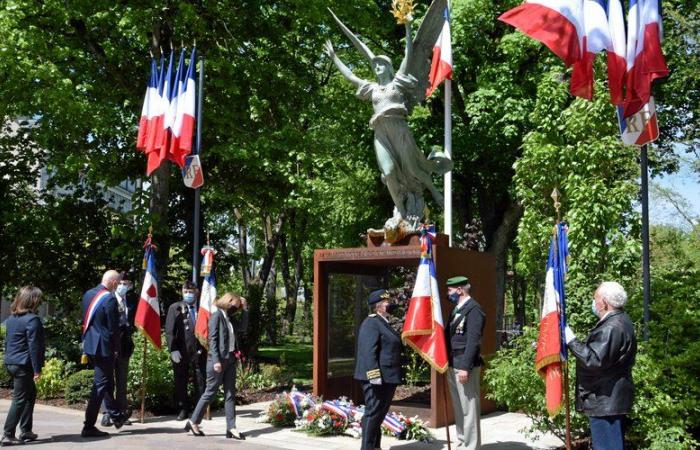
Fewer and fewer standard bearers, reduced public attendance, the commemoration of November 11 has long ceased to appeal, even though the memory of the soldiers who died for France must endure. What solutions for the future?
Like every November 11, an official ceremony will commemorate the memory of the soldiers who died for France. And like every November 11, the memorial associations will find themselves almost alone, in front of the war memorial. A disaffection which worries them, especially since at Fnaca, the average age of Algerian veterans is 87 years old.
For the other wars, 14-18 and 39-45, there are obviously no more standard bearers. In this case, how can we keep this memory of soldiers killed on the field of honor alive? “In any case, we cannot work alone in our corner,” concedes Jean-Paul Espinasse, president of the Fnaca Departmental Committee. Just like Nicole Schira, general delegate of French Souvenir for Aveyron, they worked with Christian Sagonéo, citizen reservist at the departmental military delegation (DMD) and of course with the ONACvg (the National Office for Veterans and Victims of wars) and many other people, to the creation of a departmental committee of Aveyron standard bearers (CDPDA).
The latter also launches an appeal to “any person of good will, even if they are not familiar with the ceremonies or have no connection with the world of memory or that of veterans, to join the committee”.
The initiative is laudable, but can it help to sustainably perpetuate the memory of the soldiers of the French wars? “We have to look at National Education. As soon as the school involves the children in the ceremonies, there are the parents,” points out Jean-Paul Espinasse.
For its part, National Education only participates in ceremonies if the subject of past wars is on the program. The involvement of schools is therefore not systematic. It often relies on the commitment and volunteerism of certain teachers.
In fact, memorial associations try – to the extent possible and above all within their strength – to raise awareness among a wider audience. This is the case of French Souvenir. Created in 1887, the association aims to honor soldiers who died for France, whether they fell on the battlefield or elsewhere. Its action is reflected more particularly in the maintenance of graves, commemorative monuments, and steles.
Volunteers also work to restore forgotten graves and ensure the annual collection intended to finance this work. Beyond this material conservation, Souvenir français also works for intangible transmission: conferences, exhibitions and guided tours of historic places to remind citizens of the lessons of the past.
Actions which, however, remain insufficient to attract the public on the day of the ceremonies. “We can clearly see that there are always fewer and fewer people at the ceremonies. Which shocks and saddens me. I really don't know how to do it and I regret it. Maybe we don't communicate enough? Maybe the media doesn't talk about it much? Maybe businesses should close on November 11,” asks Nicole Schira.
Questions that have not finished being asked, as the subject becomes a “concern for all of us, all of society and not just veterans”, recalls Bernard Bonnefous, president of the Fnaca Rodez committee and departmental vice-president of the same association.
Mayors are not obliged to organize the November 11 ceremony
The commemoration of November 11 is organized by the State, via the prefectures. All mayors are invited to organize a memorial event, without any obligation, however. “But if they didn’t do it, the residents could blame them,” predicts Jean-Paul Espinasse, the president of the Fnaca departmental committee. The latter recalls that town halls, on the other hand, have a moral obligation to recover the flags. “It’s the symbol of the Republic. We can’t say to ourselves, the grandpa has died, I can throw the flags anywhere!” On the association side, it's the same thing. Once it is dissolved, it must give its flags to the municipality, which must take care of them. An act which contributes, in fact, to the perpetuation of the memory of soldiers who died for France, on the field of honor or elsewhere….





